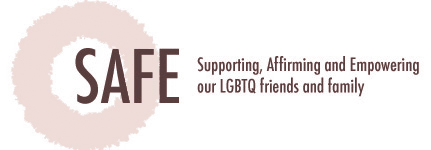|
| Understanding LGBTQs |
Part of understanding LGBTQ persons is understanding issues of sexual identity and orientation. Here are a few frequently asked questions:
What is sexual identity and sexual orientation?
Sexual identity is the degree to which one identifies with the social and biological aspects of being a man or a woman. Most people identify primarily with their biological sex but transgendered people identify more with the biological and social characteristics of the other gender.
Sexual orientation is defined by a person’s emotional, romantic and sexual attraction to another. Heterosexuals are people whose sexual and romantic feelings are for people of the opposite sex. Homosexual (or gay and lesbian) are people whose sexual and romantic feelings are for those of the same sex. Lesbians are women who are homosexual. Bisexual (or bi) refers to people whose sexual and romantic feelings are for people of both sexes. People in a period of exploration or possible transition might be called "questioning."
All of these sexual orientations are considered to be normal by all prominent mental health organizations, such as the American Psychiatric Association and the American Psychological Association. LGBTQ people are said to represent at least 10% of the total population.
How are sexual identity and sexual orientation determined?
No one knows exactly but experts agree that it is a complicated matter of genetics, biology, psychological and social factors. For most people, sexual identity and sexual orientation are shaped at an early age. While research has not determined a cause, homosexuality and gender variance are not the result of any one factor like parenting or past experiences. It is never anyone's "fault" if they or their loved one grows up to be gay, lesbian, bisexual or transgender.
Is there something wrong with being lesbian, gay, bisexual or transgendered?
No. Homosexuality is not an illness or a disorder, neither is being transgender. It is as much a part of human diversity as being left-handed, short or tall, black or blue-eyed. A person's sexual identity and orientation are just another piece of who they are. On the other hand, what is wrong is the discrimination they face in society today based on their gender and sexual orientation -- at home, in schools, at workplaces and in the larger community.
Can gay people change their sexual identy or sexual orientation?
There are organizations that claim gay and trangendered people can change their sexual identity or orientation. For a strat, their assertions assume that there is something wrong with being gay or transgender, and are based on ideological biases rather than solid science. Claims of conversion from gay to straight tend to be poorly documented, lack follow-up and contain flawed research. The American Psychological Association has stated that scientific evidence shows that such reparative therapy does not work and that it can do more harm than good.
How does one know that they are gay, lesbian, bisexual or transgender?
Some people say they knew they were attracted to people of the same sex or somehow have "felt different" from a young age. Some transgender people say they feel from an early age that their gender identity did not match parental and social expectations. Others do not figure themselves out until they are adolescents or adults. People do not have to be sexually active to know their sexual orientation as feelings and emotions are as much a part of one's identity. |
|
|
|
|
|
|
